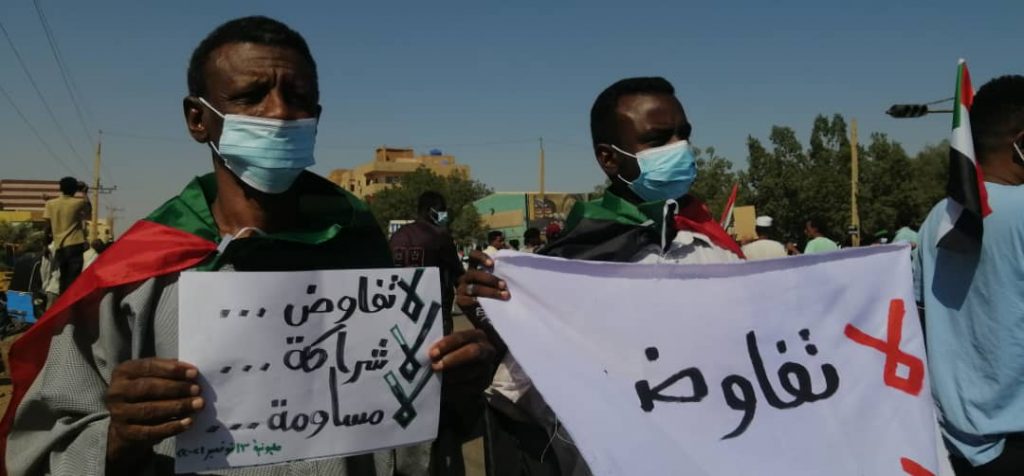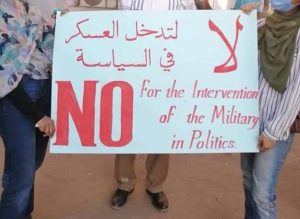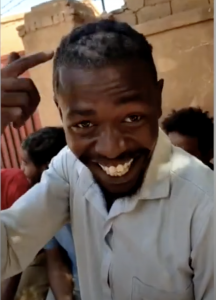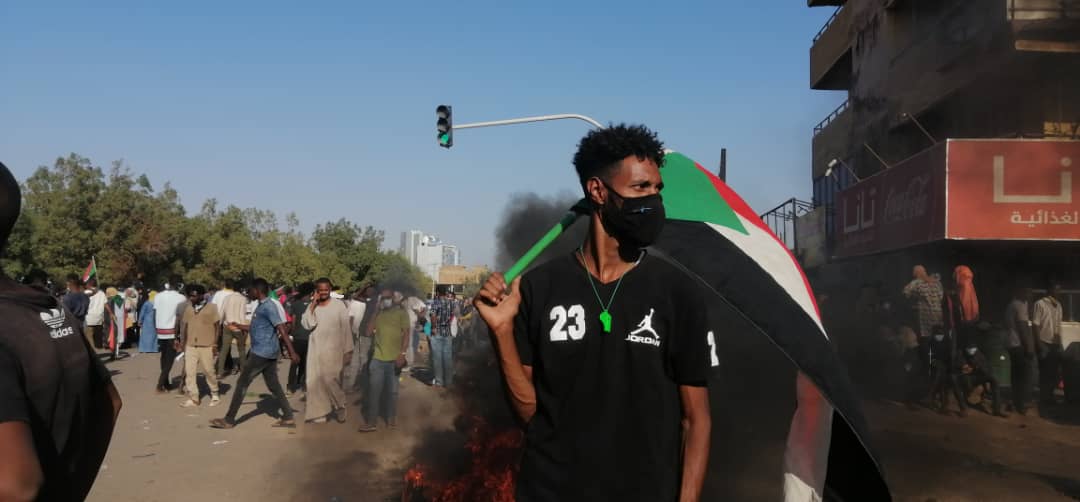Continued targeting against protestors as public refuse military coup in mass protest
15 November 2021
Security forces comprising of the army, the Rapid Support Forces militia, and police used excessive force on Saturday to disperse tens of thousands of demonstrators rejecting the military coup in the capital, Khartoum, and other cities.
Five demonstrators were killed in the pro-democracy protests according to the Central Committee of Sudanese Doctors. The committee said four protestors had died of gunshot wounds and a fifth from choking on tear gas during clashes with security forces. Members of the medical community added that armed men had stormed a hospital in Omdurman and detained several injured people.
The United States Embassy condemned the use of excessive violence against the protestors in a statement made the same day. Meanwhile, the media advisor to the army, Al-Taher Abu Haja, accused the Committee of exaggerating events on the ground, claiming the security forces showed discipline and professionalism in contending with Saturday’s protestors.

Saturday’s mass demonstrations were against the 25 October military coup and the subsequent announcement on Thursday of a new, military-led ruling council. A new Sovereign Council was sworn in under Lt.-Gen. Abdel Fattah al-Burhan’s chairmanship with the same military members and rebel leaders as before but with an almost entirely new set of civilian members.
The opposition Forces for Freedom and Change (FFC) issued a statement condemning the new Sovereign Council. “The Council announced today does not represent a Sovereign Council, but rather a mixed coup council. We affirm that the attempts of harassment, violence and arbitrary arrests will not stop our [protest] marches. The revolution has begun anew to liberate the country –and the streets will not betray us.”
 The FFC statement from Thursday appears to have been heard by civilians on Saturday who marched in their thousands in different cities across the country. At exactly one o’clock Saturday afternoon, resistance committees –-civilian groups set up to defend the demands of the revolution– helped organise assembly points and marches along major streets in the capital. Hit and run operations between demonstrators and the security forces took place throughout the day and prevented protestors from reaching gathering points on Al-Arbaen Street and the parliament building in Omdurman.
The FFC statement from Thursday appears to have been heard by civilians on Saturday who marched in their thousands in different cities across the country. At exactly one o’clock Saturday afternoon, resistance committees –-civilian groups set up to defend the demands of the revolution– helped organise assembly points and marches along major streets in the capital. Hit and run operations between demonstrators and the security forces took place throughout the day and prevented protestors from reaching gathering points on Al-Arbaen Street and the parliament building in Omdurman.
One demonstrator, Mahad al-Sayed, 54, who had driven his car with a large Sudanese flag next to the protestors told Ayin security forces had fired live bullets at the back door of his vehicle. The car owner said such attacks will not quell the Sudanese people to submit to further military rule. “These methods will not frighten us – we have faced bullets with unparalleled valour and sacrificed blood for a change.”
Al-Waleed Ali, a spokesman for the Professionals Association, the main protest organisers along with the resistance committees, said the demonstrators had reached their targets despite being subjected to repression tactics by security forces. In the spokesman’s view, the security force’s brutality only reveals their fear of the street movements.

Arbitrary arrests, beatings, and head shaving
Repressive and often illegal measures used by security forces to suppress the protests since the 25 October coup have been constant. According to independent civil society groups, there are at least 115 political detainees in Khartoum and other states. Police resort to filing charges of arbitrary “public disturbance” against those they arrest, according to lawyer Wael Ali. He told Ayin that he has represented youth arrested during the 30 October protest where judges were compelled to release them since their accusers failed to prove the public disturbance charges.
Since the coup, security forces have resorted to Illegal arrests, beatings, and public humiliations such as shaving off the hair of protestors to suppress demonstrators. During the 30 October protests, soldiers pulled six young men out of a public transport vehicle who were returning from protests along al-Siteen Street and forced them to shave their heads. “One of them was holding an old blade and started shaving my hair from the middle, he threatened me that he would use a knife if I resisted,” said Awab Ibrahim, one of the young protestors. “He shaved the back of another young man’s head before his superior told him to stop, then another soldier kicked us and caned us before releasing us an hour later –we were told not to be seen there again or we will be arrested.”
The arrests of demonstrators have no legal grounds along with the illicit dismissals of members of the civil service, says Wael Ali. Since the coup, Burhan has dismissed many officials within government institutions and hired replacements, he said. Wael Ali is handling the legal case of 200 employees that worked for the Taxation Authority who were summarily dismissed recently.


